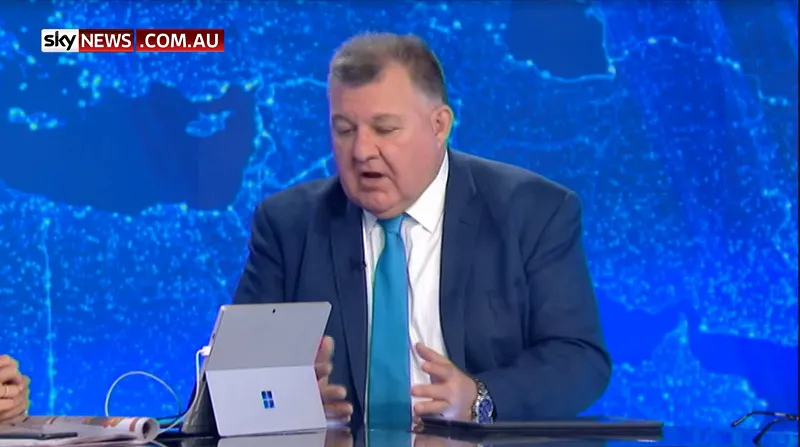
MH17 and Trump: the fallout continues as MP apologizes.
Jul 19, 2018

The tragic downing of Malaysia Airlines Flight MH17 in 2014, which resulted in the deaths of 298 passengers, remains a contentious issue, especially in the context of international relations. Recently, a Member of Parliament issued an apology regarding comments made about the incident, which reignited debates about accountability and the ongoing fallout from the tragedy. Meanwhile, former President Donald Trump's administration had been criticized for its handling of relations with Russia, particularly concerning the nation's involvement in the disaster. The complexities surrounding MH17 continue to resonate in political discourse, highlighting the lasting implications of this devastating event.
Understanding the Impact of MH17 in Political Discourse
The tragic downing of Malaysia Airlines Flight MH17 in July 2014 has remained a significant point of discussion in international relations and politics. As new developments arise, particularly involving prominent figures like former President Donald Trump, the fallout from this incident continues to shape public opinion and political narratives. Recently, a Member of Parliament (MP) publicly apologized for comments made regarding the incident, further intensifying the dialogue surrounding MH17 and its implications.
The Apology and Its Ramifications
The MP's apology stems from controversial remarks that were perceived as insensitive to the victims and their families. This incident highlights the delicate balance politicians must maintain when discussing tragedies that incite strong emotions. The fallout from such statements can have various implications, including shifts in public sentiment and potential repercussions for political careers.
In the context of Trump, his administration had previously faced criticism for its handling of international incidents like MH17. The recent apology from the MP has reignited discussions about how political leaders navigate tragic events and the importance of empathy in political discourse. This situation serves as a reminder that the words of public figures can carry significant weight, influencing both the political landscape and public perception.
Charting Public Sentiment
To better understand the public's reaction to the ongoing discourse surrounding MH17 and prominent political figures, we can look at a chart that outlines public sentiment over time. The chart below illustrates how various events and statements have influenced public opinion regarding MH17.
| Date | Event | Public Sentiment |
|---|---|---|
| July 2014 | MH17 Crash | Shock and Grief |
| November 2014 | Initial Investigations | Demand for Accountability |
| 2016 | Trump’s Election | Mixed Reactions |
| 2020 | Trump’s Statements on Ukraine | Increased Controversy |
| 2023 | MP Apologizes | Renewed Interest in MH17 |
Key Players and Their Influence
In the realm of international relations, key players often shape the narrative around tragic events. The roles of leaders, such as Trump, and their responses can significantly impact public perception. The recent apology from the MP serves as a reminder that accountability and sensitivity are essential when discussing such impactful events. As discussions continue, it is vital for political figures to approach these topics with care, recognizing the broader implications of their words.
As we reflect on the ongoing fallout from MH17, it is essential to consider the role of various stakeholders, including governments, international organizations, and advocacy groups. Each entity plays a part in shaping the narrative and ensuring that the victims' stories are not forgotten.
The Lessons Learned
The discourse surrounding MH17 and Trump serves as a case study in the importance of communication in politics. Politicians must be acutely aware of the emotional weight that tragic events carry and strive to communicate in ways that honor the memories of those affected. The recent apology from the MP may serve as a turning point in this conversation, prompting a more empathetic approach moving forward.
Furthermore, the ongoing dialogue around MH17 underscores the need for transparency and accountability in political discourse. As public figures navigate complex issues, it is crucial to maintain a focus on the human aspect of these tragedies, ensuring that the victims and their families are at the forefront of discussions.
Looking Forward
As we move forward, the legacy of MH17 will continue to influence political conversations and public sentiment. The interplay between political statements and public reaction is a dynamic that requires careful navigation. The recent apology from the MP serves as a reminder that words matter, and the fallout from past incidents can resurface in unexpected ways.
In conclusion, the ongoing fallout from MH17 and the involvement of figures such as Trump highlight the importance of sensitivity in political discourse. As discussions evolve, it is essential for leaders to prioritize empathy and accountability, ensuring that the lessons learned from past tragedies are not forgotten. The path forward involves a commitment to honoring the victims and fostering a dialogue that is both respectful and constructive.
```Related Articles

Explore Thailand: The Best Islands to Visit for Paradise, Adventure, and Relaxation

The Ultimate Guide to the Best Islands in Thailand for Your Next Getaway

Do babies need passports? How to get a passport for a newborn

How to get a U.S. passport fast: here’s how to expedite the process

What is Mobile Passport Control: 5 reasons why you should use it

SENTRI vs. Global Entry: A detailed guide

Do you need a passport to go to the Bahamas? Let’s find out

Do you need a passport to go to Mexico? A detailed guide

Do you need a passport to go to Canada? We got the answer

Do You Need a Passport for a Cruise: An Essential Travel Guide

Booster Seat Requirements: All the Rules to Follow in Your Rental Car

What Are the World’s Most Powerful Passports, and How Does Yours Rank?

How to Take a Passport Photo at Home: A Helpful Guide

You've got to have heart! Southwest's new livery

Your opinion: Should water be free on low cost carriers?

Young women bolder than guys as solo travellers
